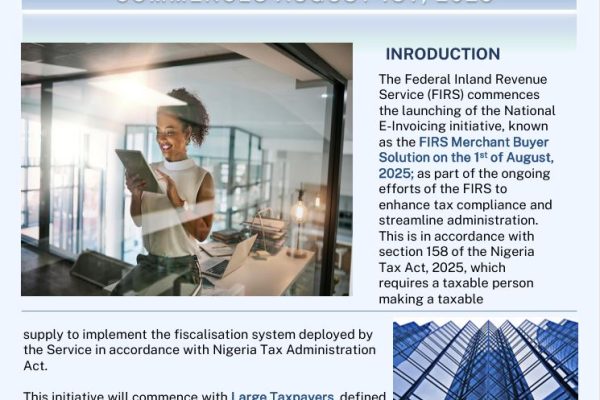Understanding the Common Reporting Standard Services
Understanding the Common Reporting Standard Services
In today’s globalized economy, businesses and financial institutions are increasingly interacting across borders. This heightened international activity brings with it a need for robust financial reporting mechanisms to ensure compliance with global tax regulations. One key initiative in this regard is the Common Reporting Standard (CRS). This comprehensive guide will delve into what Common Reporting Standard services are, their importance, and how businesses can navigate these services effectively.
What is the Common Reporting Standard (CRS)?
The Common Reporting Standard (CRS) is an international standard for the automatic exchange of financial account information between tax authorities. Developed by the Organisation for Economic Co-operation and Development (OECD), the CRS aims to combat tax evasion and enhance global tax transparency.
The CRS requires financial institutions in participating jurisdictions to identify and report information about financial accounts held by non-residents. This data is then exchanged between tax authorities to ensure that income and assets are reported and taxed appropriately.

Key Components of CRS Services
Common Reporting Standard services encompass several key components that are crucial for businesses to understand and implement effectively:
1. Due Diligence Requirements
Financial institutions must carry out due diligence procedures to identify account holders who are tax residents of countries other than where the institution is located. This involves collecting and verifying relevant information, such as the account holder’s tax identification number and residency status.
2. Reporting Obligations
Once due diligence procedures are complete, financial institutions are required to report the financial information of account holders to their local tax authorities. This information includes account balances, interest, dividends, and other income.
3. Data Exchange
The information reported by financial institutions is then exchanged between tax authorities in different jurisdictions. This exchange is typically done on an annual basis and helps ensure that all income is reported and taxed correctly.
Why CRS Services are Important for Businesses
Implementing CRS services is essential for businesses, particularly those in the financial sector. Here’s why:
1. Regulatory Compliance
Adhering to CRS requirements helps businesses comply with international regulations and avoid hefty penalties. Non-compliance can lead to legal issues and damage to a company’s reputation.
2. Enhanced Transparency
CRS services promote transparency in financial dealings by providing tax authorities with a clear view of cross-border financial activities. This helps in preventing tax evasion and ensures fair taxation.
3. Improved Risk Management
By implementing CRS services, businesses can better manage risks associated with financial transactions and client relationships. This includes identifying and addressing potential compliance issues before they become significant problems.
How to Implement Common Reporting Standard Services
Implementing CRS services effectively involves several steps. Here’s a comprehensive approach:
1. Understand CRS Requirements
Familiarize yourself with the CRS guidelines and requirements applicable to your business. This includes understanding the due diligence procedures, reporting obligations, and data exchange protocols.
2. Select a Reliable CRS Service Provider
Choose a CRS service provider with a proven track record and expertise in handling CRS-related tasks. Factors to consider include the provider’s technology, customer support, and experience with international compliance.
3. Integrate CRS Processes
Integrate CRS processes into your existing financial systems and workflows. This may involve updating your software, training staff, and establishing procedures for collecting and reporting financial information.
4. Regularly Review and Update
Regularly review and update your CRS processes to ensure ongoing compliance. This includes staying informed about any changes in CRS regulations and making necessary adjustments to your procedures.
Common Challenges in CRS Implementation
While CRS services offer numerous benefits, businesses may encounter some challenges during implementation:
1. Complex Regulations
Navigating the complex regulations and requirements of CRS can be challenging. Businesses must stay updated on the latest guidelines and ensure their processes are aligned with international standards.
2. Data Management
Managing and reporting large volumes of financial data can be cumbersome. Implementing efficient data management systems and procedures is crucial for accurate and timely reporting.
3. Cost Implications
Implementing CRS services may involve significant costs, including software upgrades, training, and service provider fees. Businesses should budget for these expenses and consider the long-term benefits of compliance.
Future Trends in Common Reporting Standard Services
As global financial regulations continue to evolve, so too will CRS services. Here are some potential future trends:
1. Increased Automation
Advancements in technology are likely to lead to more automated CRS processes, reducing the manual effort required for data collection and reporting.
2. Enhanced Data Security
With growing concerns about data privacy, there will be a stronger emphasis on enhancing data security measures to protect sensitive financial information.
3. Broader Adoption
As more countries adopt the CRS, businesses will need to stay abreast of new jurisdictions and their specific requirements to ensure comprehensive compliance.
Understanding and implementing Common Reporting Standard services is crucial for businesses engaged in international financial activities. By adhering to CRS guidelines, businesses can ensure regulatory compliance, enhance transparency, and effectively manage financial risks. As the global regulatory landscape continues to evolve, staying informed about CRS requirements and trends will be key to maintaining successful and compliant financial operations.
For businesses looking to navigate the complexities of CRS, partnering with a reliable CRS service provider and integrating robust processes into your financial systems will pave the way for smoother compliance and long-term success.










